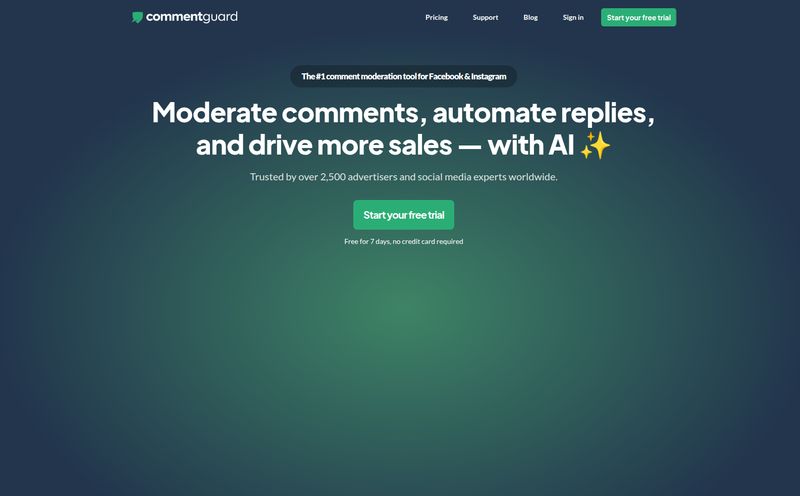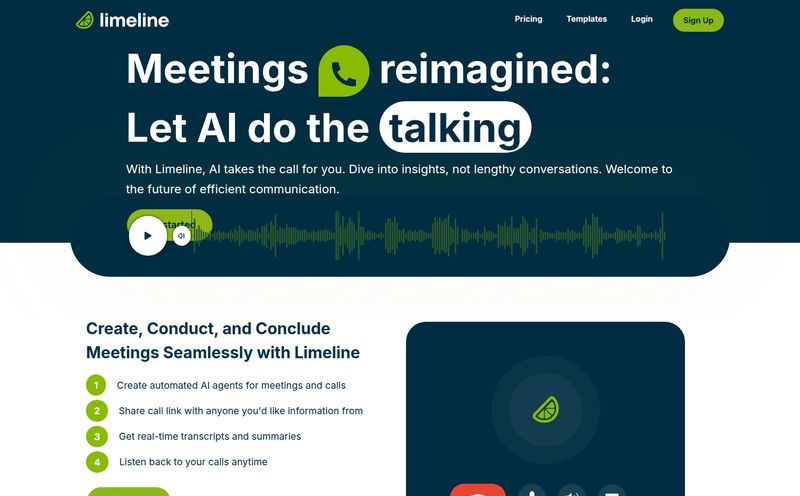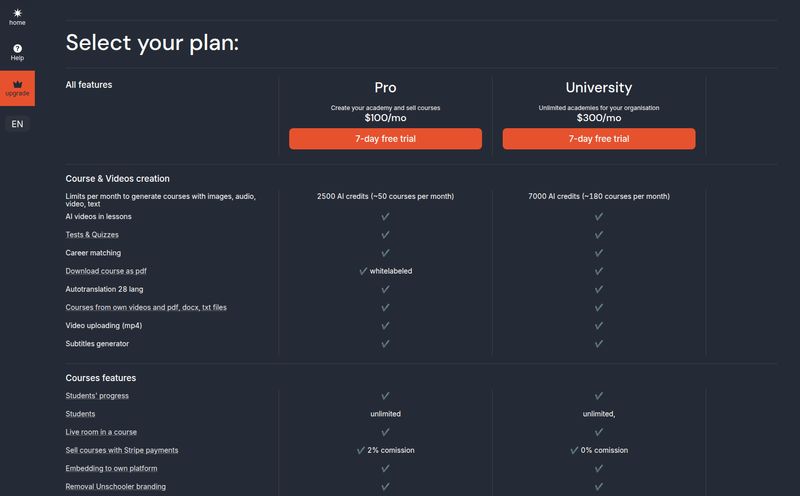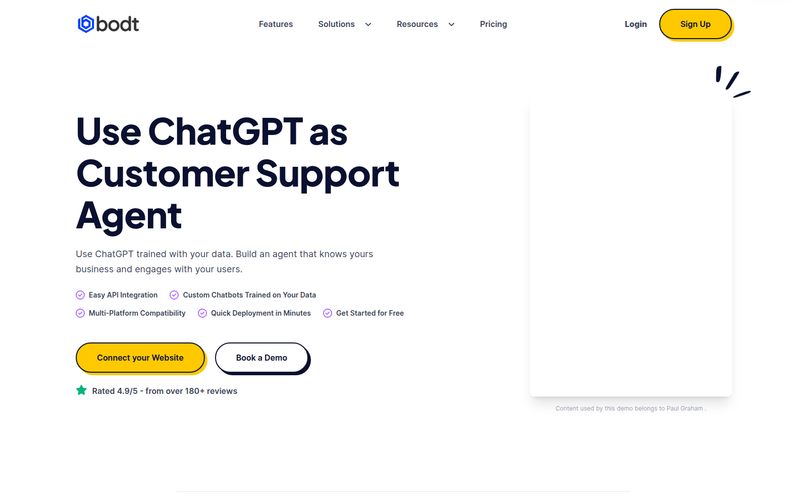Job hunting is a special kind of purgatory. You spend hours tailoring your resume, writing cover letters that feel like you're shouting into the void, and then you send your application into the great digital abyss, often to never hear a thing. It’s a numbers game, they say. It’s also a soul-crushing grind.
On the other side of the fence, my recruiter friends are singing a similar tune. They're drowning in a sea of applications, trying to find that one perfect candidate—the proverbial needle in a 500-resume haystack. It's a messy, time-consuming process for everyone involved.
Every so often, a tool comes along that claims it's going to fix all this. Most are just shinier versions of the same old thing. But when I heard about CareerGPT and its use of “multi-agent AI,” my curiosity was definitely piqued. Could this actually be different? Or is it just more tech-bro jargon for a glorified search filter?

Visit CareerGPT
What is CareerGPT Anyway?
At its heart, CareerGPT aims to be your personal career concierge. It’s a platform built on generative AI designed to take the grunt work out of both finding a job and sourcing candidates. The mission, as they put it, is to address the pain points of the entire process. And honestly, there are a lot of pain points.
Instead of you, the job seeker, manually scrolling through LinkedIn, Indeed, and a dozen other job boards every day, CareerGPT proposes to do it for you. And for recruiters, instead of you manually searching for keywords and sending out hundreds of InMail messages, it automates the sourcing process. It’s a two-sided solution for a two-sided problem.
The Two Sides of the Hiring Coin
I like that CareerGPT isn't just focusing on one part of the equation. It's trying to build a bridge between the two parties who need each other most. This is how it seems to break down.
For the Endless Scrollers (The Candidate Experience)
Imagine this: You tell your AI assistant what you're looking for—not just a job title, but the kind of company culture you'd thrive in, the tech stack you want to work with, maybe even a desired commute time. Then, it goes out and scours the web, bringing back a curated list of opportunities that actually fit. No more wading through “entry-level” positions that require 5 years of experience. This automated job searching is the core promise for candidates. It’s not just about saving time; its about preserving your sanity.
For the Talent Hunters (The Recruiter Experience)
For my fellow professionals in talent acquisition, the value proposition is just as strong. Candidate sourcing is an art, but a lot of it is repetitive science. CareerGPT offers to automate this, acting like a digital bloodhound that sniffs out potential candidates based on your specific criteria. This could mean fewer hours spent on Boolean searches and more time doing the human part of the job: building connections, conducting meaningful interviews, and actually talking to people.
So, What’s This “Multi-Agent AI” Magic?
Okay, this is the part that got my inner geek excited. “AI” is slapped onto everything these days. But “multi-agent AI” is a bit more specific and, in my opinion, a lot more interesting.
Think of it like this: Instead of one single, monolithic AI trying to do everything, a multi-agent system is like a highly specialized team. You've got one agent whose only job is to scan job boards. Another agent’s expertise is reading a job description and pulling out the real requirements. A third agent might be tasked with comparing those requirements to a candidate's profile. It’s like a pit crew for your career—each member has a specific job, and they work together in perfect sync to get the car back on the track faster than any single mechanic ever could.
This approach has the potential to be much more effective than a single model. It breaks a massive, complex problem (finding the perfect job/candidate) into smaller, manageable tasks. It's a more sophisticated way of thinking about automation, and it’s what sets CareerGPT apart from a simple script or a basic algorithm.
My Honest Take: The Good, The Bad, and The TBD
No tool is perfect, especially not a new one. After looking at what information is available, here's my breakdown.
The good stuff is obvious. Automating the most tedious parts of the hiring cycle is a massive win. For years, we've talked about how technology should free us up to do more human work, and this is a prime example. The efficiency gains for a high-volume recruiter or a discouraged job seeker could be huge. It's a direct solution to a very real, very widespread problem.
Now for the not-so-good. The platform requires JavaScript to run. This isn't a deal-breaker for most, but it's an accessibility and technical point worth noting. The bigger issue for me is the lack of detailed information. The website is pretty sparse on the specifics of how it all works. We know the 'what' (automated sourcing) but not the 'how' (which platforms does it scan? how deep does the candidate matching go?). This vagueness makes me a bit hesitant. It feels like we're only getting a peek behind the curtain, not the full show. This is something I hope they fix, an a detailed whitepaper would be fantastic.
Let's Talk Pricing (Or the Lack Thereof)
Here’s the million-dollar question: what does it cost? And the answer, for now, is ¯\_(ツ)_/¯.
There’s no pricing information available on their site. This isn't uncommon for a platform that might still be in a beta or early-access phase. It could mean a few things:
- Freemium Model: They might be planning a free basic tier with paid premium features.
- Early Adopter Program: It could be free for now to build a user base and gather feedback.
- Enterprise-Focused: They might be targeting large companies with custom quotes, not individual users.
While the ambiguity is a little frustrating, it also presents an opportunity. If you can get in early, you might get to use a powerful tool for free. Keep an eye on this one.
Frequently Asked Questions about CareerGPT
- How is CareerGPT different from using LinkedIn or Indeed filters?
- The key difference is the “multi-agent AI.” Standard job boards use filters based on keywords you input. CareerGPT aims to have a team of AI agents that not only search but also analyze and match opportunities or candidates on a deeper, more contextual level, saving you the manual filtering process.
- Is my data safe with an AI tool like this?
- This is a critical question for any new platform. While CareerGPT doesn't provide a detailed security policy yet, you should always follow best practices: use strong, unique passwords, be mindful of the information you share, and review the platform's privacy policy once it becomes available. Generally, reputable tech companies take data security very seriously.
- Can CareerGPT automatically apply to jobs for me?
- Based on the current information, the focus seems to be on automating the search and discovery phases. Automating applications is a much more complex (and ethically gray) area. For now, think of it as a research assistant, not a robot that fills out forms for you.
- Is this tool better for certain industries, like tech?
- While not explicitly stated, tools like this often perform best in fields with clearly defined skills and roles, like technology, finance, or engineering. However, the underlying concept could theoretically be applied to almost any industry.
- As a recruiter, will this replace my Applicant Tracking System (ATS)?
- I highly doubt it. It's more likely designed to be a top-of-funnel sourcing tool that feeds high-quality candidates into your existing ATS. It's an assistant, not a replacement for your core recruiting infrastructure.
Final Thoughts: A Promising Glimpse of the Future?
So, is CareerGPT the revolution it claims to be? The jury is still out, mostly because they haven't given us all the evidence yet. The concept is brilliant. The use of multi-agent AI is genuinely exciting and a step beyond what most current tools offer. It attacks a real, universal frustration in the professional world.
However, the lack of detail and transparent pricing leaves a lot of questions. I’m cautiously optimistic. I’ve signed up for their waitlist, and I suggest you do too. If CareerGPT can deliver on even half of its promise, it could fundamentally change the miserable dance of job hunting and recruiting for the better. And that’s a future I’m definitely here for.
References and Sources
- For more on how AI is impacting hiring, check out this piece from the Harvard Business Review on Generative AI in Hiring.
- To understand the basics of the technology, Wikipedia's entry on Multi-agent systems is a decent starting point.



